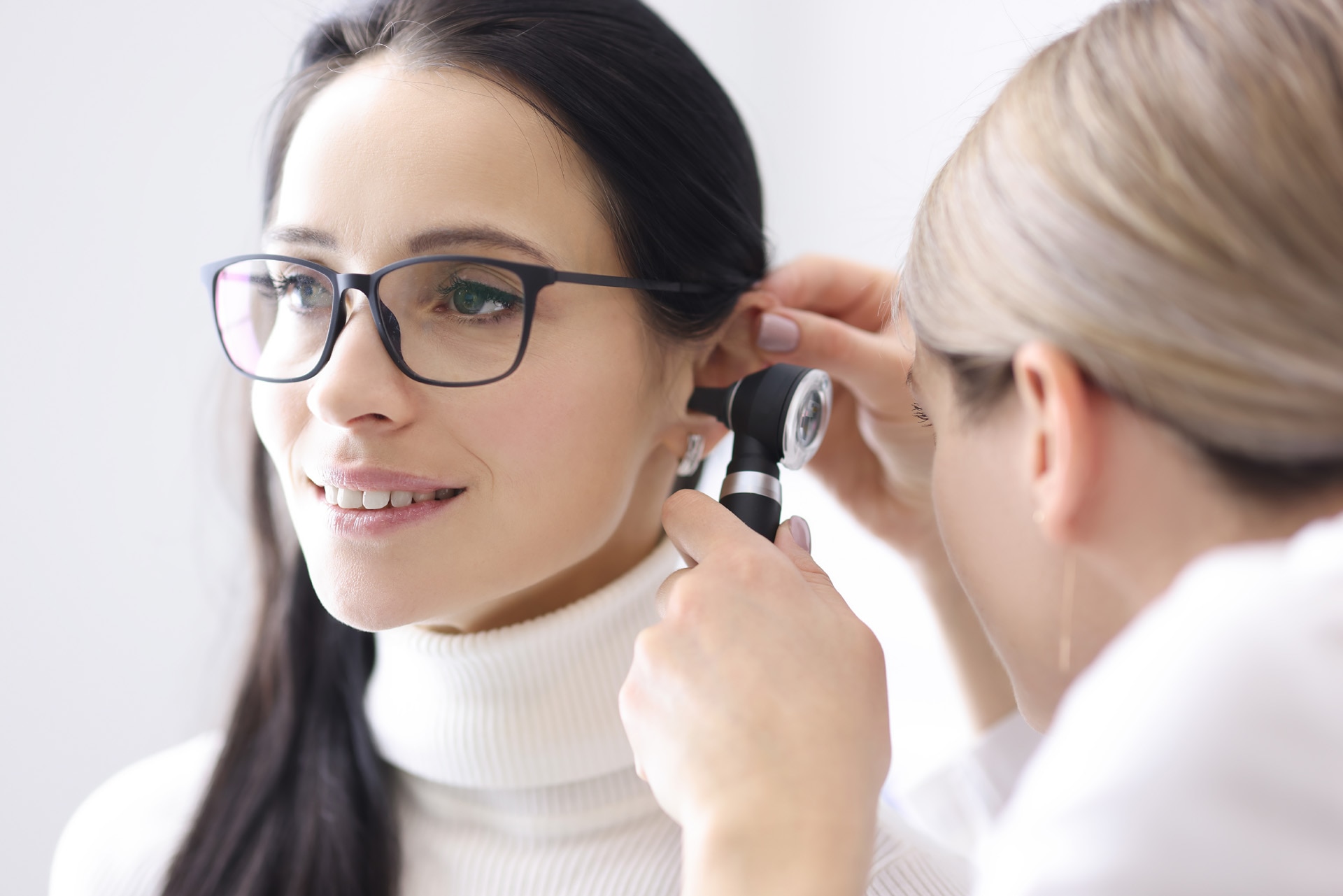Hearing Aids Costs & Options
Hearing aids can be an important investment in enhancing your quality of life and overall well-being. Hearing aid price varies based on factors like style, advanced features, and where you purchase them. While basic models may cost less, advanced options offer discreet design and cutting-edge technology. No matter your budget or needs, there’s a Phonak hearing solution for everyone.
Get answers to frequently asked questions about hearing aid costs and options to help you on your journey to better hearing.

Where can I buy hearing aids?
To buy hearing aids, find a hearing care professional in your area.
Hearing care professionals have advanced testing and tools to gauge your hearing capabilities precisely. With extensive training, our professionals understand which hearing aid and technology level will suit you.
Furthermore, the hearing care professional will support you, as you become acclimated to wearing hearing aids. They will provide tips to help you become accustomed to wearing hearing aids, and kits to properly clean and maintain them. They will also repair your hearing aids if they break.
As the analogy goes: You can put glasses on, see how they help, and know for certain what you still cannot see. When it comes to hearing, you have no idea what you are missing.



How do I choose a hearing aid?
Like many other medical devices, the proper selection of a hearing aid requires the skill of educated and trained healthcare professionals for the best results. After performing a comprehensive hearing test, your hearing care professional will assist you with selecting the best hearing aid solution that is right for your unique hearing needs.
Find a hearing care provider near you and download the Phonak Take-Along sheet to bring to your appointment. Ask your provider which Phonak hearing aid solution is right for your unique hearing needs.
Additionally, follow these steps to help you prepare and collaborate with your hearing care professional in selecting the perfect hearing solution for your unique needs.
1. Make a list of hearing goals & ambitions:
Making a list of your own hearing goals and ambitions is an important first step. Outlining what situations you find most challenging, and what you want your hearing aids to do will help you focus throughout the process.
2. Get insight from those closest to you:
Talking with those around you – especially family and friends – will help you find out even more. They have likely noticed many things about your hearing, such as which situations and what distances challenge you the most. They know when you can’t hear them.
3. Check your hearing:
Hearing checks are quick, simple and pain-free. Visit the Phonak Online Hearing Test here.
4. Get a more in-depth physical examination:
A longer examination requires your doctor, an ENT or a hearing care professional. They will examine the physical state of your ears and head.
5. Review the available hearing aid options:
Your hearing care professional will then take all this into consideration and assemble a list of hearing aid models and accessories which fit your wants and needs. As noted above, they can then set tiers — based on hearing aids prices and performance — to give you options. Many offer hearing aid payment plans.
6. Do a hearing aid price comparison:
Your hearing care professional will be able to share the devices they recommend. In addition to understanding how the different devices help with your hearing loss, their features and benefits, and how they fit your lifestyle, it is important to ask about their pricing.
7. Check with your private health plan (if applicable):
If you do have a private health plan, you may want to reach out to see what is available depending on your coverage.
8. Research hearing aid payment plans:
Your hearing care professional may be able to support you with information on payment plans.
9. Be ready to adjust:
Make note of what you like and do not like about your hearing aids, and keep these points ready for your next visit to your local hearing care professional.


What features are available in the hearing aids I purchase?
Like most innovative technology, hearing aids are innovating rapidly. What was incredibly advanced just two years ago might even be a standard feature. Available features will certainly change more in the years ahead. This could affect the price of a hearing aid.
Here is a brief list of features that might be available in the hearing aids that fit your hearing loss:
- Preset programs
- Individually programmable
- Connectivity to Bluetooth®-enabled devices
- Digital memory
- Direct audio input
- Telecoils
- Synchronization
- Directional microphones
- Feedback control
- Noise reduction
- Environmental noise control
- Rechargeable
- Low battery indicators
- Wax guards
What should I consider before I purchase a hearing aid?
- Finding a trusted hearing care professional is crucial in finding the best hearing aid solution for your needs. Find a provider in your area now.
- Check to see if the hearing aid includes a warranty that covers parts and labor for a specified period. Some warranties may also include office visits or additional professional services.
- Find out if the hearing care professional offers a trial period, allowing you to try out the hearing aid before committing.
- Think about future needs such as upgrades, connectivity options, power improvements, and available accessories.
- Read product reviews, not only for the specific model you prefer but also for the entire brand line.



What is included in hearing aid prices?
There are many factors that determine the price of hearing aids. These can include the level of technology, pricing structure of the clinic, and the services and accessories included with the hearing aid purchase.
Talk to your hearing care professional, who can tell you how certain device features can impact pricing and guide you towards the most suitable hearing aid option for your unique needs.
Find a provider in your area to learn more about hearing aid costs.
Can I compare hearing aid prices?
Absolutely! Begin researching the costs of hearing aids yourself or for a loved one. A hearing aid price comparison is a solid idea; however, it is best to consult a hearing care professional before making a final investment. Purchasing hearing aids
Considerations include:
- Consumer reviews
- Brand vs. brand comparisons
- Available technology
- Recommendations from other hearing aid wearers
- New emerging technology
- Refund policies
- Warranties
- Additional fees
- Total costs
Do private health plans cover hearing aids?
Some private health plans may cover the cost of hearing aids. It is best to reach out to your plan, if applicable, to learn what is covered. Your local hearing care professional can assist you in determining what coverage is available to you.
What should I expect when buying a hearing aid?
Here are a few things you should expect when buying a hearing aid:
- Preliminary hearing test
- Meet with a hearing care professional for a full physical checkup (which may include health referrals)
- Discuss your lifestyle with the hearing care professional. What would you like to do? Focus in conversations, watch television, drive more, listen to music, attend business meetings, etc.
- Receive a range of options; accordingly, sorted by hearing aid prices
- Be surprised by the available technology
- Consult with your insurance provider and consider different hearing aid payment plans (which will affect the total price of hearing aids)
Once you have hearing aids, you might want to factor in some time for adjustment. But your new hearing aids may also do things which you didn’t expect. For example, you may notice sounds you didn’t hear before, like the floors squeaking in your home or your car’s turn signal clicking.
What is the best hearing aid?
There are many factors to consider which is the “best” hearing aid for you. That’s why partnering with a hearing care provider is essential. He or she will be able to help you find the best hearing aid that fits your lifestyle and your budget.
Ways to reduce the cost of your hearing aids
There are a few ways to reduce the cost of hearing aids for yourself or your loved ones. Please consult your local hearing care professional to see if you are eligible to test out a hearing aid risk-free. If you are interested in Lyric – the invisible hearing aid – please consult a Certified Lyric Hearing Aids Provider here to determine whether you are eligible to try Lyric risk-free for 30 days.
Want to learn more and see which Phonak hearing aid is right for you?
Find a trusted hearing care provider near you to get started. Then download the Phonak Take-Along Sheet to bring to your appointment and ask your provider which Phonak hearing aid is right for your unique hearing needs.

Reasonable Accommodation
Thanks to the Americans with Disabilities Act (ADA), a civil rights law that guarantees equal opportunities for individuals with disabilities (like hearing loss). Employees who have a challenging time hearing at work do not have to be held back. With a simple request to your HR department, you can get the accommodation you need to hear in all working environments.
Workplace accommodation, including assistive listening devices are granted upon employee request so long as they do not inflict undue burden upon the employer.
